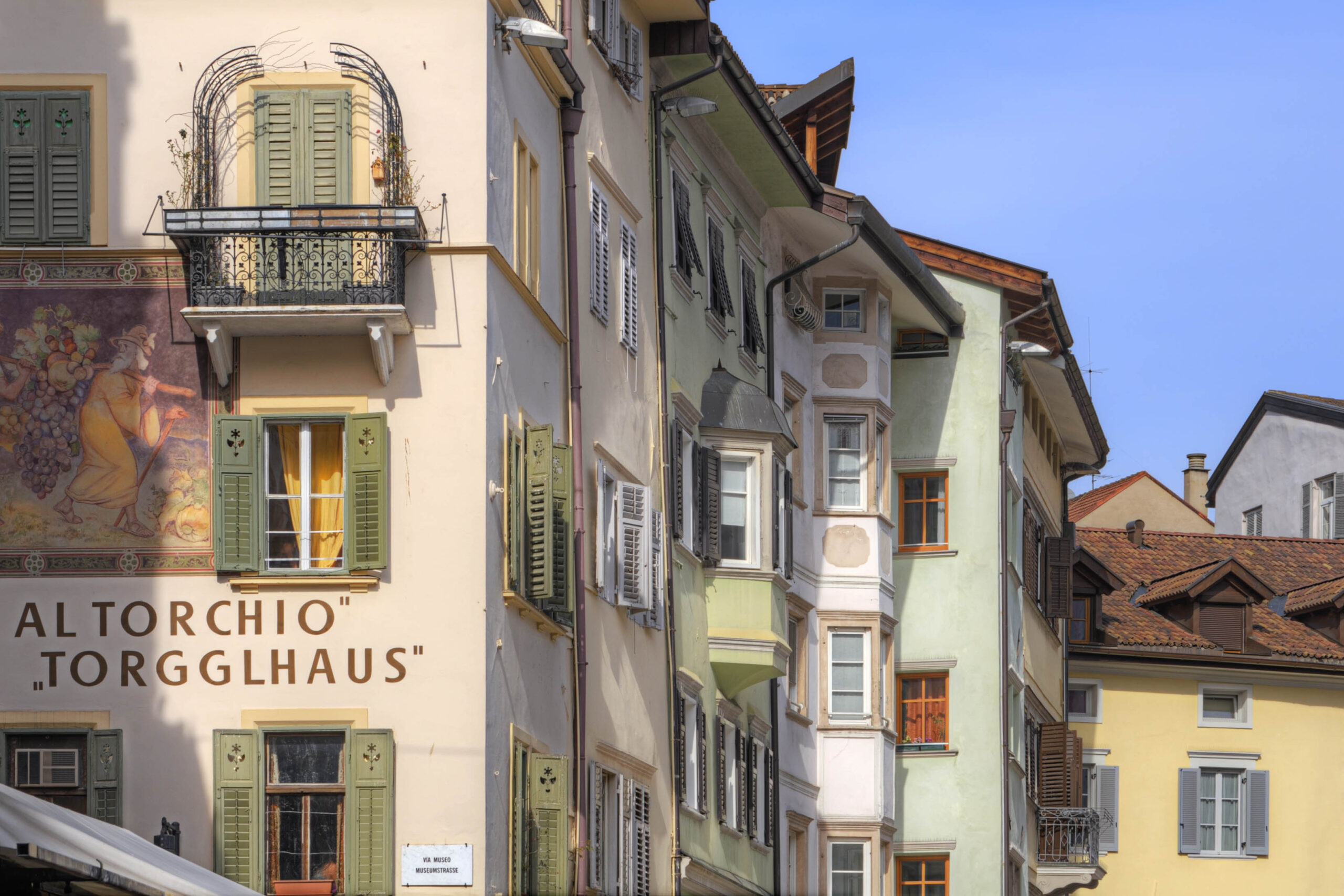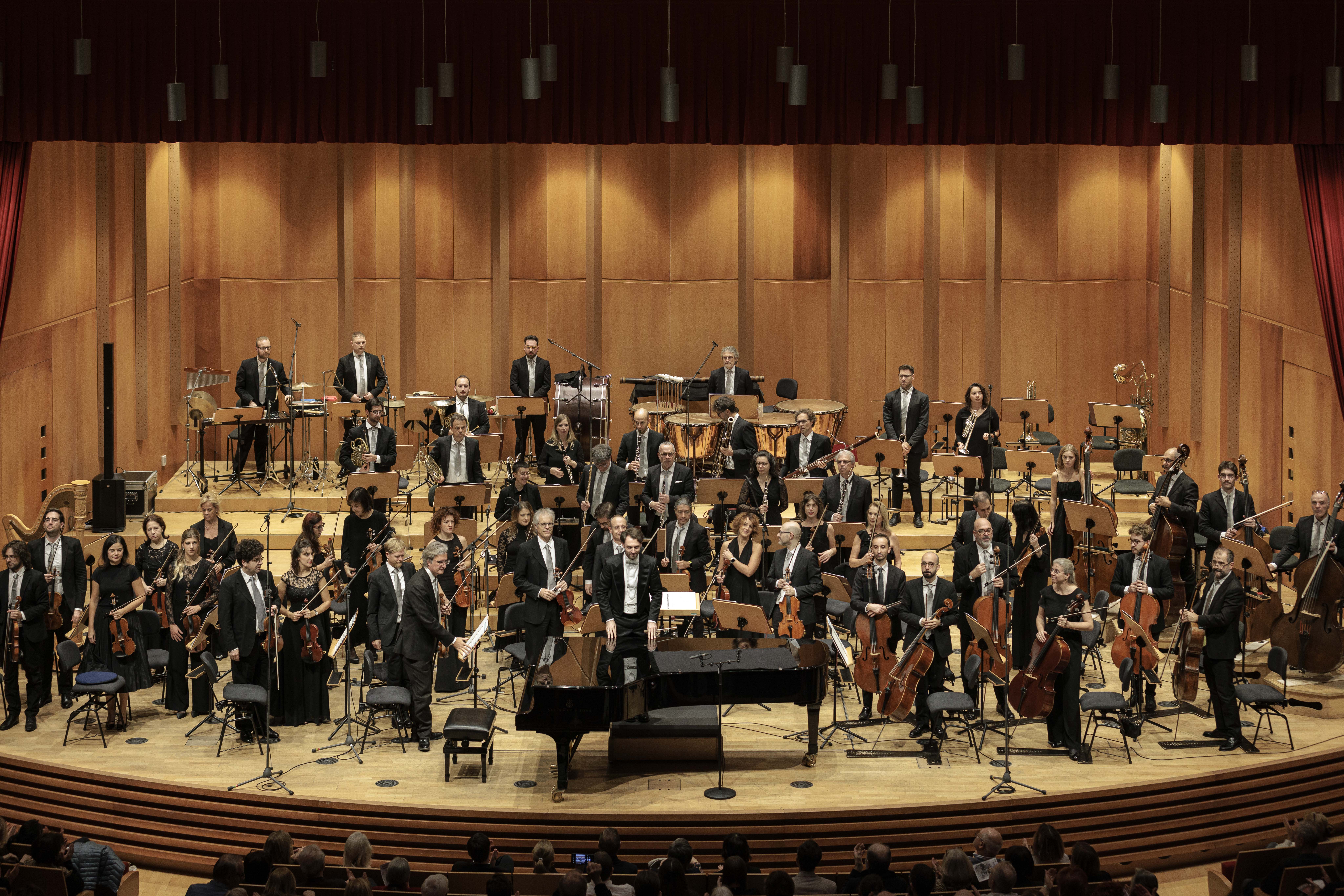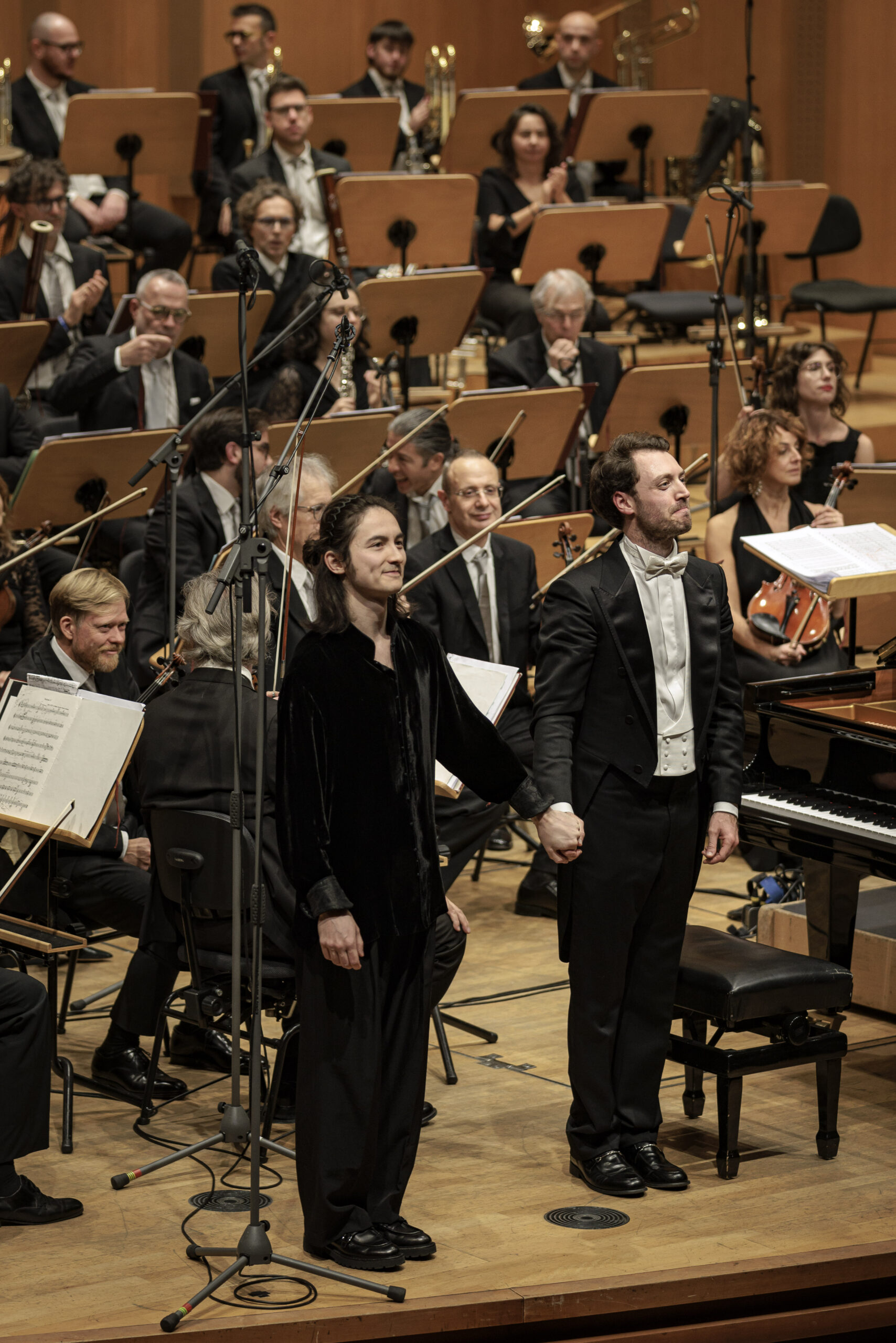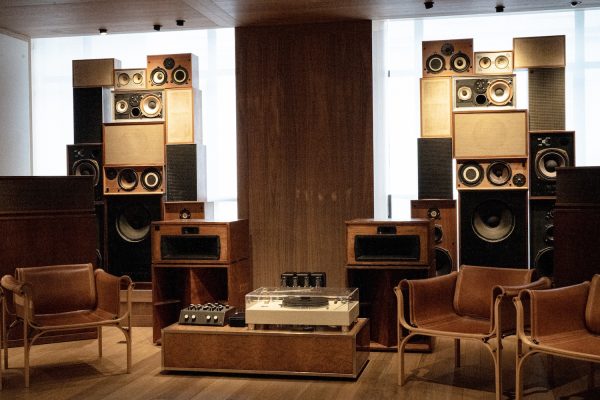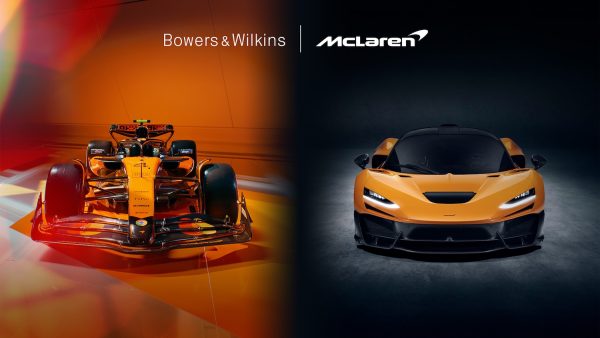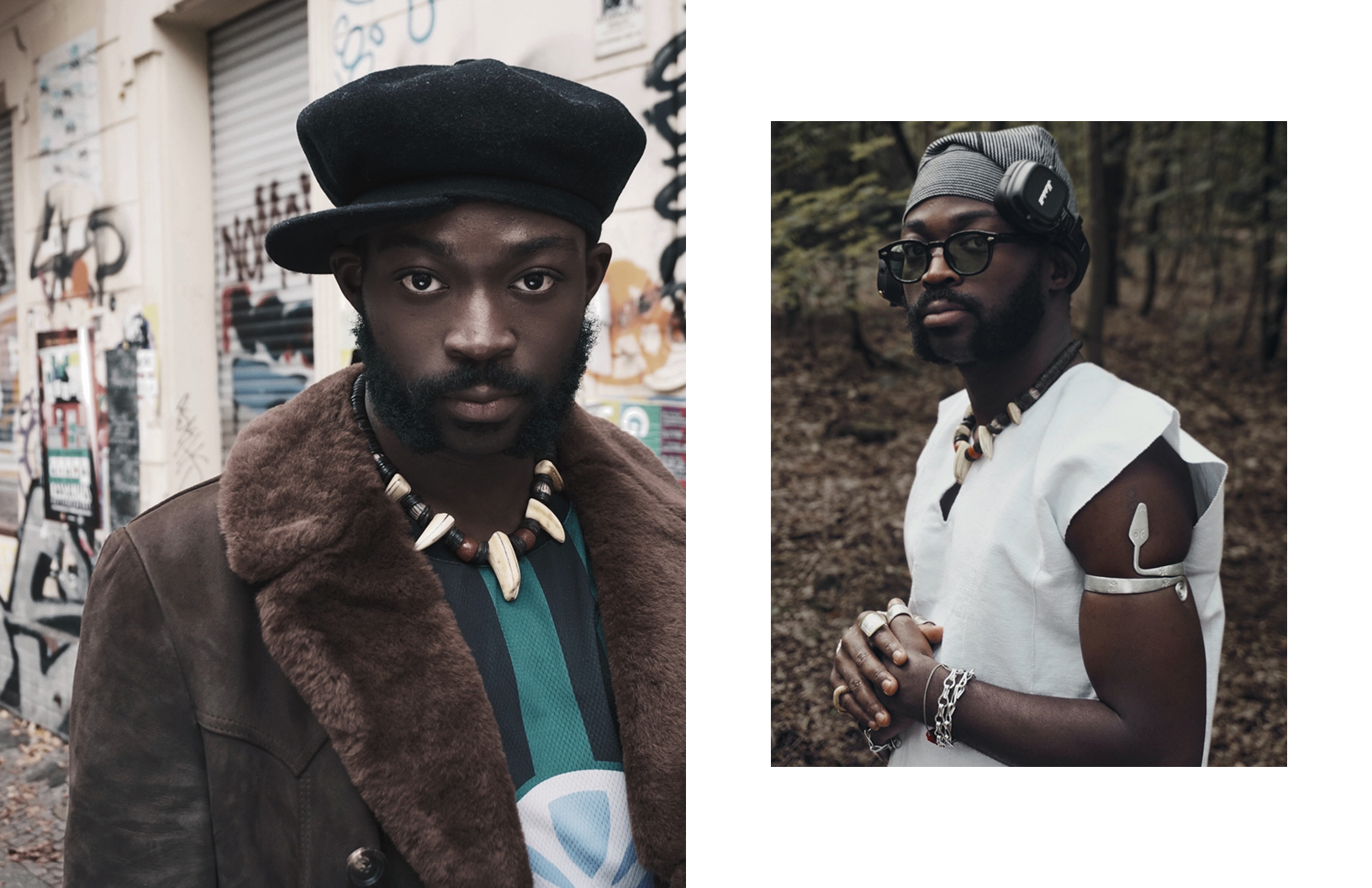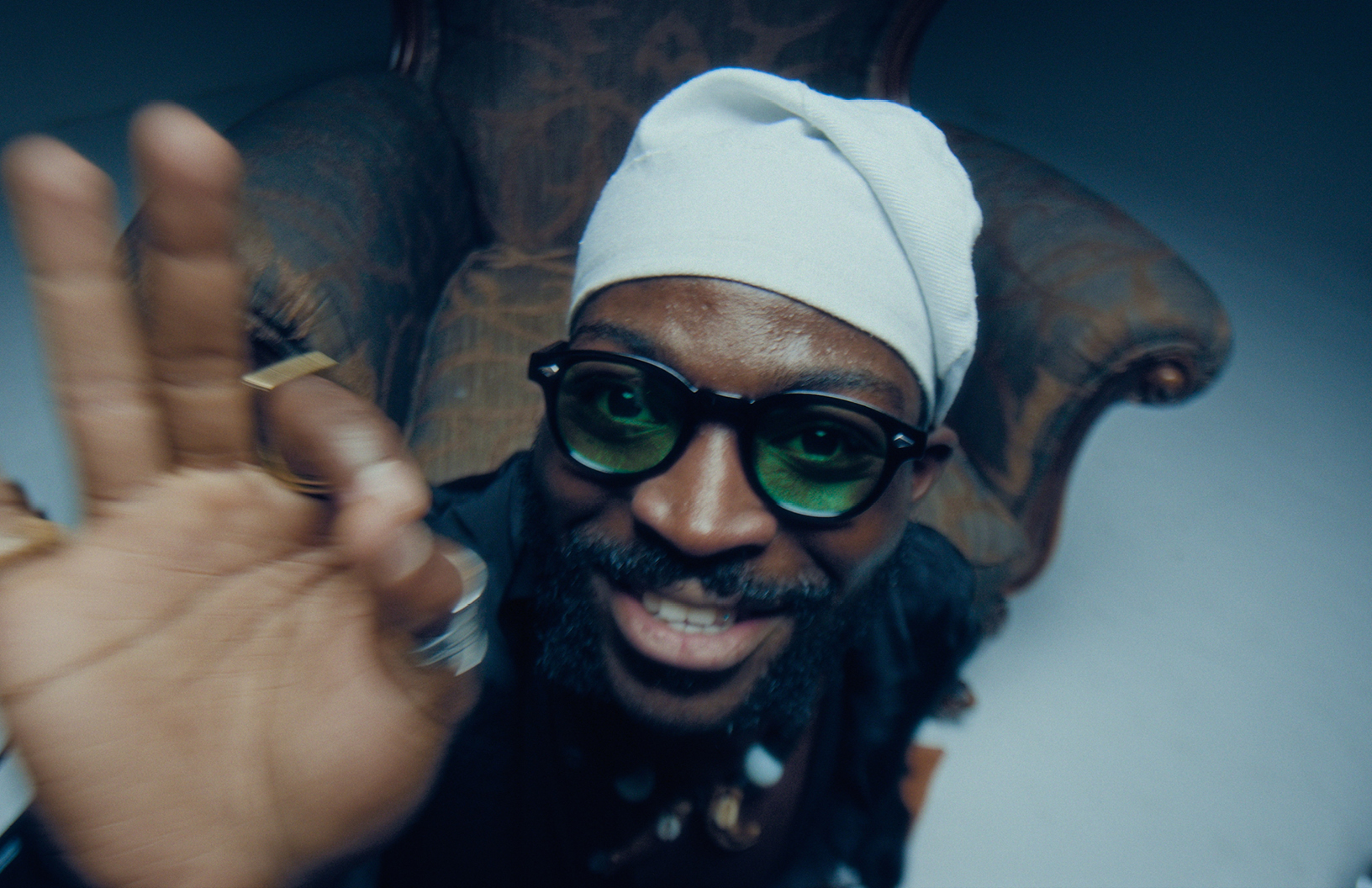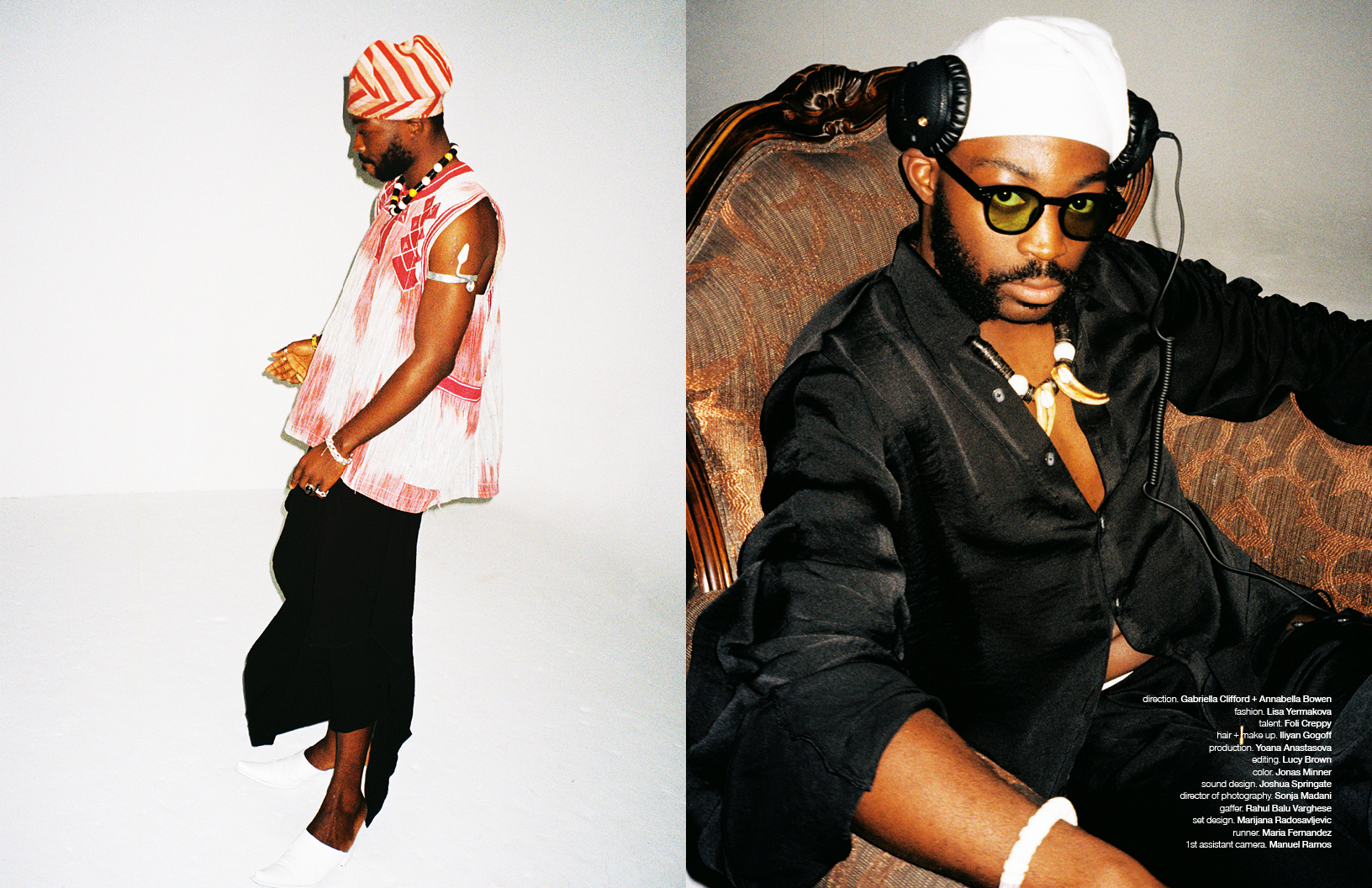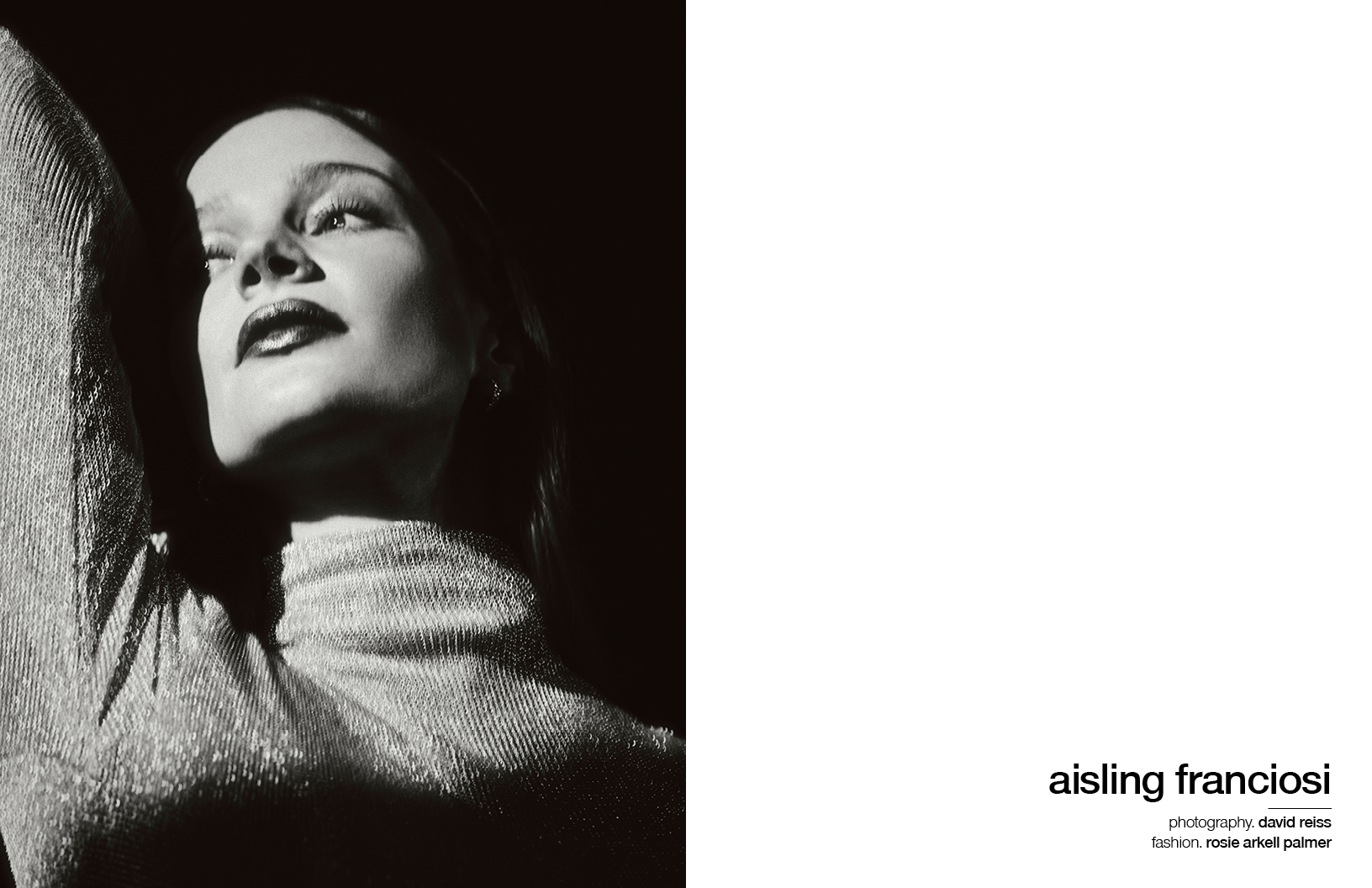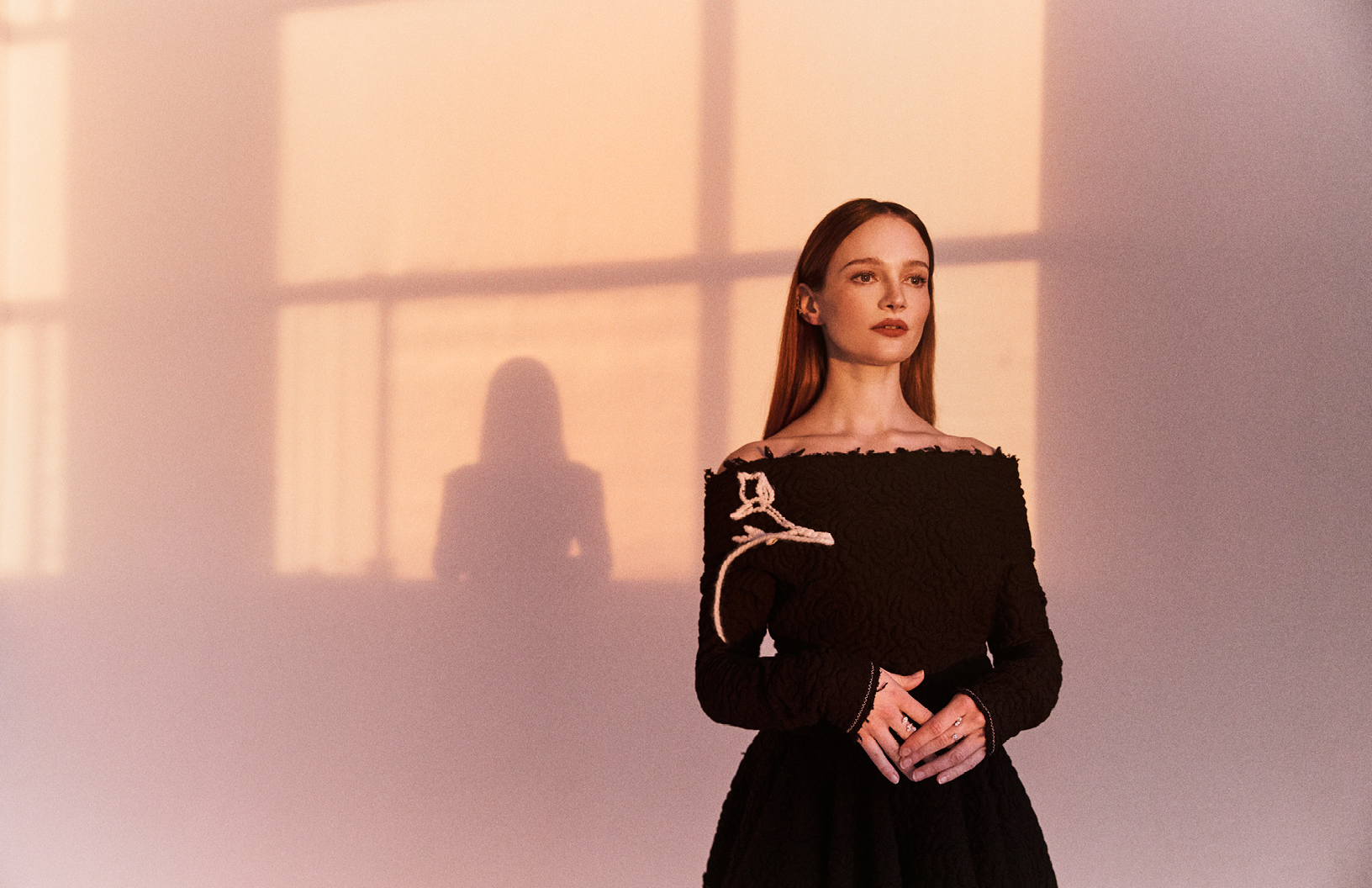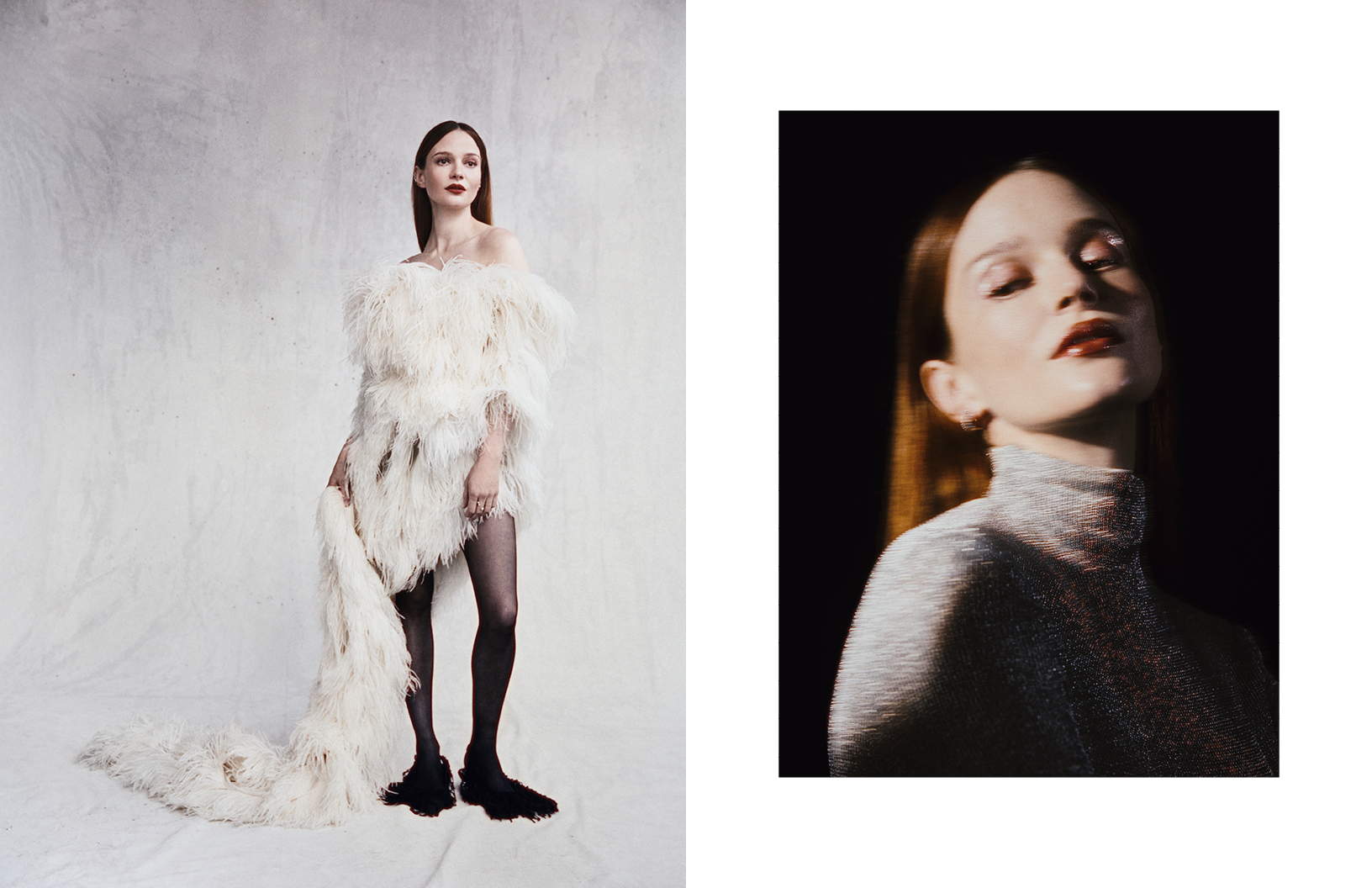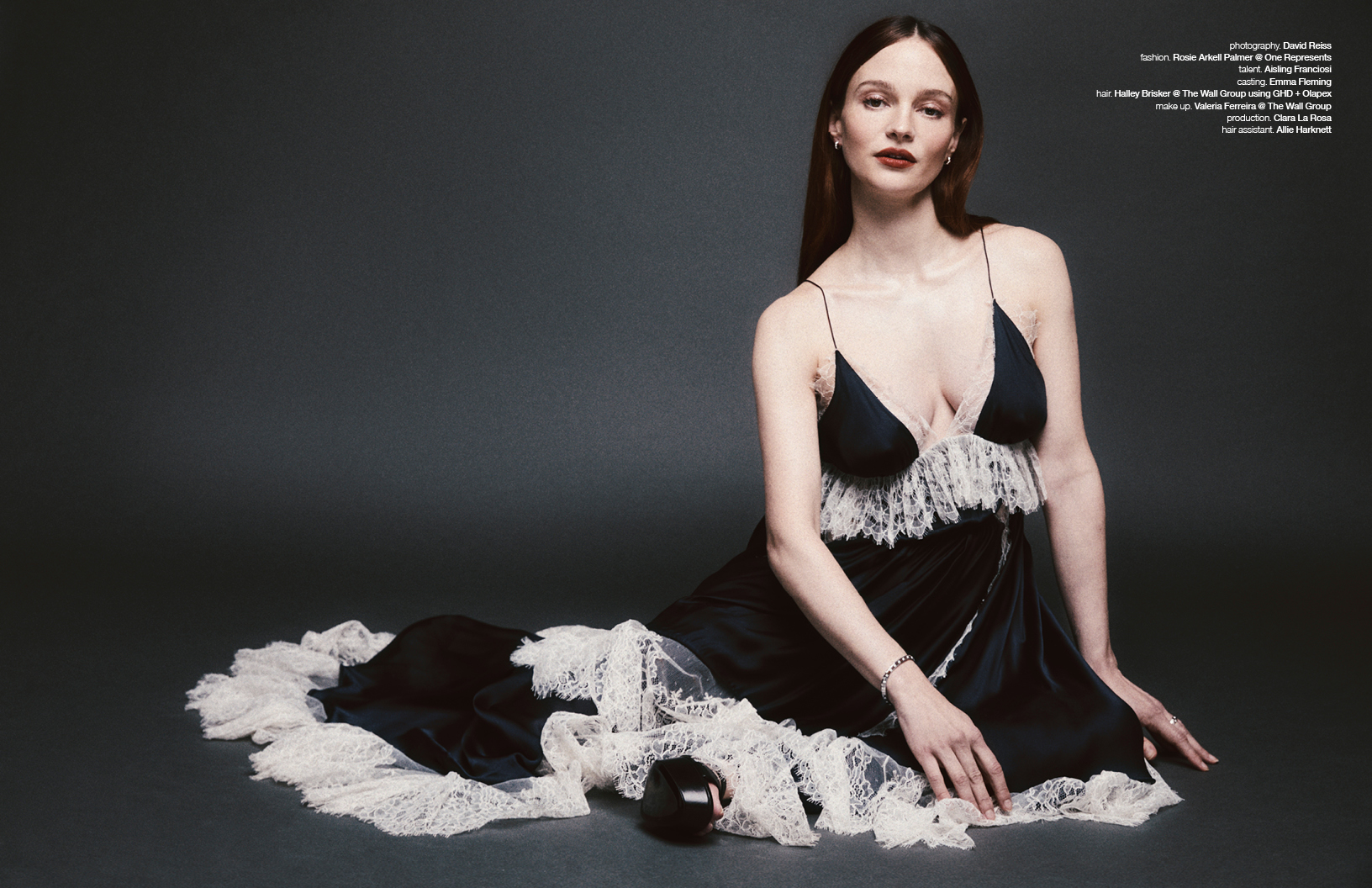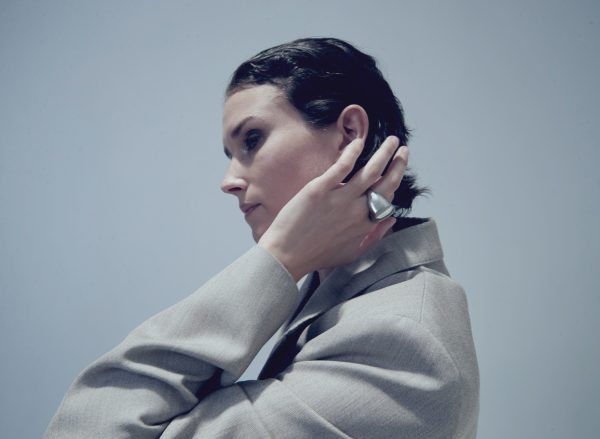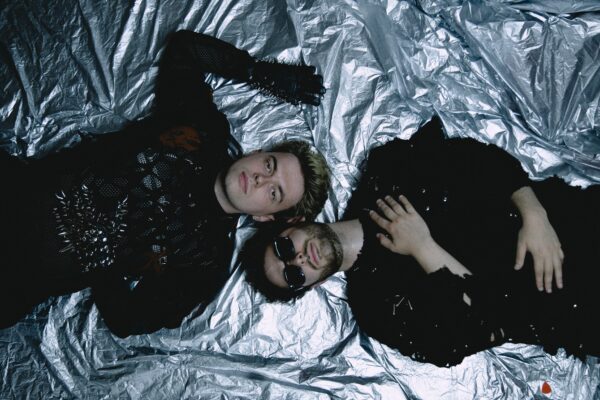
jacket. MarMar Halim
trousers. King and Tuckerfield
shoes. Le Silla
earrings. Nathalie Mills
rings. Shedean Jewelry
opposite
gown. Marmar Halim
shoes. Le Silla
rings. The Trendhaus
earrings. Nathalie Mills Jewelry
Over her career, Scottish-born actress Karen Gillan has played a vast spectrum of characters. She’s led both Jumanji films, portrayed Nebula in the Marvel Universe’s Guardians of the Galaxy and starred in a host of acclaimed television series. With her latest film Gunpowder Milkshake, currently streaming on Netflix, she’s managed to crank things up a notch, kicking down boundaries and proving that gender is nothing when it comes to true power. Gillan talked to Schön! about her experience filming Gunpowder Milkshake, her career to date and further upcoming projects.
How has it felt going back to film sets after the massive change brought about by the pandemic?
It was weird going back to set for the first time after the pandemic. I think that like everyone, we all kind of grew weirdly accustomed to staying inside our homes. It felt a little nerve-wracking to go back into a workplace, but also, it’s nice to be able to go back to work and do what I like doing. So, I felt lucky, but a little nervous. Actually, I shot three films during the pandemic, which was like a particularly busy time.
Did working during the pandemic feel different for you psychologically? How so?
I mean, it was just a different experience entirely. There was certainly no socialising whatsoever, and there were no dinners where you get to know each other, which helps when you’re working with your on-screen colleagues. From time to time, in these films, you’re thrown together at the last second, and then you’re meant to have a lifelong relationship with these people on screen — and so, how do you do that? You have to cram in some time together to form at least some kind of bond, but that certainly wasn’t happening. It was a different experience, and it was nerve-wracking, because any minute, something terrible might happen.
What is your preparation process more generally? As in, how do you get into the mindset of a new character?
I do the same thing for every character, which is that I’ll go through the script, and I’m like a detective — looking for all the clues [about] who this character is. I write down everything that my character says about themselves. I do it from my point of view, so it’s everything I say about myself, and then I write down everything other characters say about me. They might say, ‘she doesn’t care about anyone but herself,’ and that tells you, oh, she’s being perceived in a very different way. Then I look for all descriptive stage directions. So, if she ‘nervously approaches the door,’ we get the sense that maybe she’s more of a nervous person. It gives you a really broad sense of who this person is. Because of that, I read psychology essays, where I’m usually looking for one emotional hook with the character. In the film Gunpowder Milkshake, for instance, she was abandoned by her mother when she was 12, and that was something I could grab onto. I read a lot about abandonment issues and how that affects the person later in life. That was like a steering wheel for me.

opposite
full look. Victor Gleemund
boots. Voyett
earrings. Sterling King
left ring. Mishara
right ring. Nadine Aysoy
Speaking of Gunpowder Milkshake, what did preparation for this role look like? Did you have to do any martial arts training or anything like that?
I had a lot of training. That was probably the thing that I did the most. And I’ve done action sequences before in films but usually, there’s one or two that I get to focus on. But this was a lot of action — sort of nonstop. I had about three weeks before we started filming between my previous job and Gunpowder. So, I just went to Berlin and started training with the stunt team every single day, and they were teaching me how to box. We were running around the studio, we were rolling around, and then learning the routines as well. During that time, I was also learning how to fire guns, gun safety and how to change armour quickly. So, it was like a boot camp, essentially.
Samantha is a great example of equality and power that isn’t sexualised. Did you feel empowered to play a leading character in such a feminist movie? Were there things you liked about that the most?
I love the character. I completely fell in love with her and loved playing her. The thing I liked most was playing around with the vulnerability of her emotions and how tough she is when she’s fighting. She probably has a lot of anger toward her mother, and that all comes out when she’s fighting. It was fun to play this slightly muted character that, as soon as she’s fighting, this beast is unleashed, because all of her aggression has been bubbling under the surface. As soon as somebody wants to fight, she’s brilliant. This is a release for me.
I was proud that our director was quite insistent that nobody is wearing a sexy outfit. That is not what this film is. This is just about a group of powerful women coming together to take on a mission. It’s not a male fantasy at all. And it’s cool that we don’t explore some love life; I think that it’s pretty irrelevant for the story and kind of just separates the female assassin depiction from others. It’s just about her work life and dealing with some family issues.

gown. Marmar Halim
shoes. Le Silla
rings. The Trendhaus
earrings. Nathalie Mills Jewelry
opposite
top + trousers. King and Tuckerfield
What was your favourite scene from Gunpowder Milkshake to make?
Oh, my favourite scene to make was the first fight sequence in the film that I do. Because this is the first time the audience and the director see you fighting, and it has to be good. So, the pressure was on, and the director wanted me to do it all in one take and a tracking shot with no stunt doubles. It was me and three male actors, and we had to just rehearse the hell out of it, because there was going to be nowhere to hide, nowhere to cut around to the action — it all had to be played in one shot. So, we were nervous and excited about it and trained so much — but then there was the moment when he’s about to call action, and we’re all looking at each other with a little fear in our eyes because there’s just so much pressure, but the best kind of pressure… It was exhilarating.
It’s quite difficult to imagine someone with Samantha’s fearless nature panicking. What do you think Samantha is afraid of?
I like the idea of her… she fights people and she’s not afraid of anything, and then comes home and there’s a spider in her apartment and she’s like, ‘aah!’ That’s what I imagined [laughs]. I’m joking. I think what she’s afraid of is abandonment, because of what she dealt with. Her mother abandoned her when she was 12 years old. I think if abandonment comes in any form after that, it brings up the feelings of her mother leaving her. For instance, when she’s sort of abandoned by the firm and their protection, she had a huge emotional reaction and it’s not because of them abandoning her, it’s because it’s bringing up everything that happened with her mother.
Do you have any characters you’ve played that are your personal favourite? Ones that match your personality — maybe one with whom you would save the world?
Maybe Martha from Jumanji. She would save the world with me. She’s a sweet kid. She’s like a nervous, awkward teenager and the avatar of an action hero. I feel like she would join forces with me, and she’s probably closest to me in terms of weird teenager nature. I think that’s why I got that role… I was just an awkward nerd [in school], and that’s what I got to play in Jumanji.

top + trousers. Dolce & Gabbana
shoes. Le Silla
earrings. Nathalie Mills Jewelry
opposite
gown. Marmar Halim
shoes. Le Silla
rings. The Trendhaus
earrings. Nathalie Mills Jewelry

Have you ever experienced difficulty leaving a certain character?
Yeah, I probably picked up some traits from characters that have never left me, but generally, I can switch it off. It’s not like I stay in character throughout the whole film. I do it at work and then as soon as they say ‘cut!’ I’m out of character. But the one thing that gets affected is my voice. I think that my accent has a weird hybrid of different accents now because I’ve just not been acting in my natural accent for so long. It is still Scottish, but I hear English in there and I hear American and I’m like, oh, I need to get back to Scottish.
What did your stunt lady teach you that could be used in everyday life?
I think kicks. I’ve always wondered if that would kick in if I were to be attacked. I hope I never find out, but I’ve learned a lot of punches and stuff. I’m very used to punching things.
Are you comfortable improvising? And do you like to improvise on set or stick more to the script?
Until the last film, I did. I didn’t change the words, but I would change the delivery. It was like I improvised with the written words, so it’s like I would never deliver the line in the same way twice. It was different every time, and I love doing that. And sometimes the directors get annoyed — they’re always saying that ‘it was good the way it was,’ and I’m like, yeah, but I’ve moved on from that. But the last film I did was Judd Apatow’s movie [The Bubble], which was very improvised. That was my first adventure into the real improvisation world, and I loved it. Now I don’t know if I can go back to sticking to the script! I absolutely loved it so much. I mean, it was so freeing — it gets you out of your head. You’re just in the moment and so present, and I feel like it just gets natural performances out of people.

full look. Victor Gleemund
boots. Voyett
earrings. Sterling King
left ring. Mishara
right ring. Nadine Aysoy
opposite
top + trousers. King and Tuckerfield
You’re also going to be in Dual. What can you tell us about your role in that?
I did Dual before the Judd Apatow movie. The Judd Apatow movie was always loose, free and open to improvisation. Dual was specific to the script because of the way the director writes. His name is Riley Stearns, and he has a very incredible, unique way of writing, and you must deliver it in the way it’s written. I got different experiences, which I was grateful for. It was like one extreme to the other, but I loved working on Dual. It’s an amazing movie, and it’s about a girl who creates a clone of herself because she has a terminal illness, and she’s going to give the clone to her family to kind of ease it all. But then, she recovers from the illness. She’s still got this clone, and they have to fight each other in a duel to the death to see who gets to live as the person. So, it’s a cool premise, and I was acting opposite myself, which was a weird experience but I loved it.
Naturally, you also play Nebula. What’s been your favourite experience from being part of the Marvel universe?
I think it’s just working with the Guardians of the Galaxy. I think everybody’s become close now and it feels like a little family. I would say just ‘getting that family back together’ is the best part of being in the MCU. But it’s also fun to be in good movies that are so well-liked by people. That’s always a nice feeling, and getting to meet all the Avengers is not something I ever thought I’d be doing. So, that was cool.
Why should people watch Gunpowder Milkshake?
Because it’s a fun popcorn movie that you can watch with all your friends, and you’re just going to have a really, really good time. And I think after the crazy year and a half that we’ve all had, this is just the exact right thing that we all need right now, which is just some fun escapism.

top + trousers. Dolce & Gabbana
shoes. Le Silla
earrings. Nathalie Mills Jewelry
opposite
jacket. MarMar Halim
trousers. King and Tuckerfield
shoes. Le Silla
earrings. Nathalie Mills
rings. Shedean Jewelry
Gunpowder Milkshake is currently streaming on Netflix and will be in select cinemas on 15 July.
photography. Raul Romo
fashion. Wilford Lenov @ Celestine Agency
talent. Karen Gillan
hair. Bobby Eliot @ The Wall Group using John Frieda + GHD
make up. Kara Yoshimoto Bua @ A-Frame Agency using CHANEL
casting + production. Alabama Blonde
photography assistant. Danica Taylor
fashion assistant. Kyle Hayes
words. Nino Sichinava


Schön! Magazine is now available in print at Amazon,
as ebook download + on any mobile device





























































